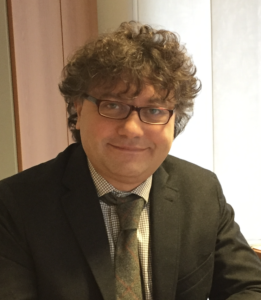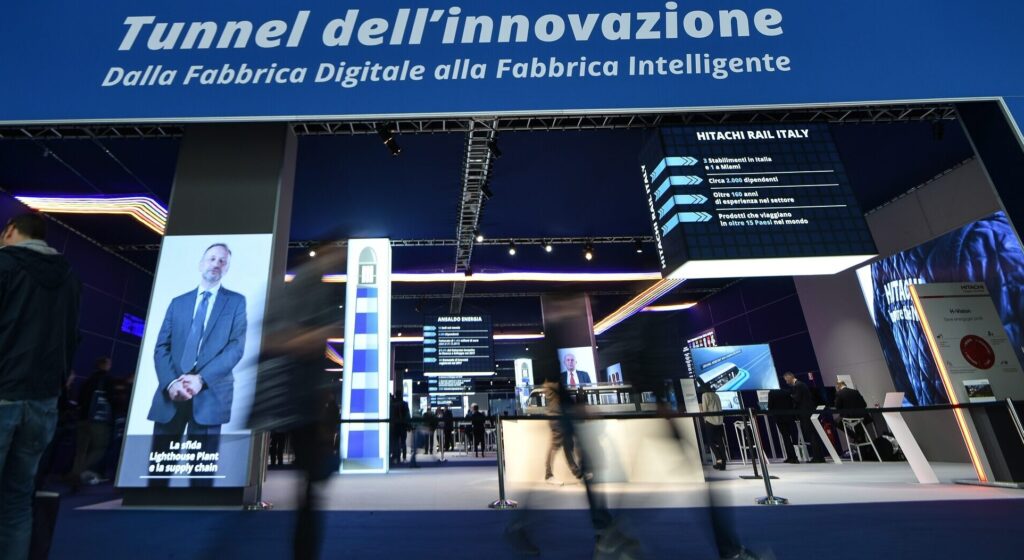Clepa, the European Association of Automotive Suppliers, commented The EU taxonomy regulation – the classification on EU scale for sustainable activities – declaring that this regulation aims at directing investments towards sustainable commercial activities. This means that, over the incoming years, the sustainability level of each business activity will influence its access to funding.
The European Commission has presented new proposals for delegated acts that amend and complement the classification scheme for sustainable business activities. «CLEPA welcomes this initiative and sees the delegated acts as a step forward in the acknowledgment of automotive suppliers’ contribution to a sustainable economy and their role in the advancement of green mobility in the EU. Originally, the taxonomy regulation did not recognise the economic activities related to the production of e-mobility components as “sustainable”, while the assembly of electric vehicles was considered as such. The proposed amendment to the Climate Delegated Act incorporates the production of powertrain components including e-motors, power electronics, thermal management and braking systems in its definition of sustainable economic activities. The circularity chapter of the Delegated Act on non-climate environmental objectives gives much-needed recognition to the sustainability contribution of some aftermarket-related activities, but so far excludes the design for circularity and remains ambiguous on remanufacturing actions by automotive suppliers. As a result, critical activities by automotive suppliers remain at risk of being overlooked by capital markets and could suffer from underinvestment. The use of low carbon/recovered materials, lightweighting, and product robustness should be considered in future revisions of the taxonomy».
Hence, the reflection that many automotive supply companies continue to face competition with OEMs, who can claim eligibility for the revenue generated by a sold vehicle whose value is generated by all components, while the manufacturing activities of a large share of these components remains non-eligible.
Clepa’s vision about the EU taxonomy regulation
The great race of General Motors towards electric

The top player in Detroit has recently announced a record investment worth 6.6 billion dollars in Michigan to enhance the production of electric vehicles, of which 2.6 billions to build a factory for electric batteries, in joint venture with LG Energy Solution. The target would be increasing the yearly production capacity to one million vehicles within 2025.
«This significant investment -said Mary Barra, GM Chair and CEO – demonstrates our commitment to strengthen our Michigan and U.S. manufacturing presence and grow good-paying jobs. We will have the products, the battery cell capacity and the vehicle assembly capacity to be the EV leader by mid-decade».
Young-Soo Kwon, CEO of LG Energy Solution said: «With a shared vision, GM and LG Energy Solution pioneered the EV sector by seizing new opportunities in the market well before anyone else did. Our third battery manufacturing plant, fittingly located in America’s automotive heartland, will serve as a gateway to charge thousands and later millions of EVs in the future».
The mission of GM on the market is surpassing Tesla as the best-seller brand of electric cars in the United States by the half of the decade.
The current situation? Gm sold less than 25,000 electric vehicles last year, ranking third in the United States behind Tesla and Ford.
Energy transition: searching for skills
The presence of electronic and electromechanical components in machinery, and therefore in industrial processes, has been rising for some time now in manifold sectors and its growth goes on hand in hand with 4.0 systems. To comply with the trend, it is necessary to create a new generation of skilled professionals
Not only transports: the manufacturing industry in general is concerned by the increasingly massive presence of motors and drives that exploit electric energy instead of the more conventional hydraulic and pneumatic systems.
Besides, it is common opinion that the higher electrification of manufacturing activities or of the building sector might lead – as calculated by Bloomberg NEF in a recent report – to the 60% decrease of greenhouse-effect gases by the half of the century.
Certainly, as highlighted by Enel and Turin Polytechnics in a research presented last December, the secret resides in the will and capability of the various stakeholders of giving birth to an integrated strategy.
What, in other words, the energy provider and the University identify with the expression, the triangle of electricity, at whose vertices we can find renewables, electrification of final consumptions and efficiency of digitalized networks.
Expectations are high: the study estimates that within the next biennium the above-mentioned renewables can represent almost half of total provisioning sources (48%) while from now to 2050 the consumption electrification should reach percentages by 42, 41 and 53% respectively in the ambits of general industry, mobility and residential.
Irrespective of the future possible scenarios, the irremissible matter is that skills are needed to manage them.
And they are not the manifold innovative skills that have been a topical theme since the dawn of Industry 4.0.
The dear old electrotechnics is instead at stake, implemented and refined by a degree in electronic engineering that is in itself synonym of certain employment.
This is the belief – and we will see it hereunder – of the secretary of ANIE Automation and ANIE Energy Marco Vecchio, who however started from other reflections for his interview with Electric Motor Engineering.
Different requirements in the various sectors
«We monitor», Vecchio stated, «the electrification process in mechanics and mechatronics, that is to say how products of this kind converge then into chains like machine manufacturing.

It is an indicator of the trends that enliven the transition from hydraulics to electrical-electromechanical.
From 2013 to 2019, the percentage of electromechanical and electronic components increased by 7% yearly versus the value of machines themselves, also due to the contribution of drives and motors.
For some applications, electromechanics assures more efficiency than hydraulics but this does not mean it is the absolute best option.
It depends on application sectors and fields. In the future, electro-hydraulics grants more energy efficiency and durability, as well as controllability inside a supply chain.
However, it is more correct to say that if in some cases electromechanics is winning, hydraulics and hydraulics-pneumatics is the winner elsewhere».
For instance, «where remarkable performances are imposed – I think of machinery and packaging with their requisites of motion control that mandatorily need a significant contribution by electronics» then «we can affirm the automation injection has quintupled in the around last ten years».
On the contrary, traditional mechanics is still the privileged choice for more basic operations and fields, such as woodworking and textile.
Concerning environmental impacts and consumptions, Marco opportunely preferred making some distinctions.
«There is efficiency enhancement, he pointed out, «and this implies a lower energy demand, although basically electric motors have some of the highest consumptions, no matter what their application field is, from white goods to automotive».
A matter of class
Their subdivision into categories by requirements, the assignment of a precise energy class also to drives and inverters, is one of the aspects at which associations like ANIE have worked in collaboration with institutions. This has resulted in a regulation on eco-drives that will come into force since next July (2021/341).
«In cascade», the number one of ANIE Automation and ANIE Energy added, «we expect regulations about pumps and other parts and on their efficiency, to be read according to a vision of systemic approach and not just for the single component».
Regarding renewables and the European New Green Deal, Vecchio is cautious: «What is contained in the national recovery and resiliency Plan about the green source theme is important.
Nevertheless, the problem is that to concretize the goal of the national Climate-energy Plan, the installation of renewables should increase by six times yearly from now onwards.
We unceasingly dialogue with institutions also in this field, in the attempt of overcoming the hindrances of the well-known NIMBY effect».
The shift to green in its turn needs competences. Therefore, developing them becomes fundamental for the Country system, as well as for the players engaged in various capacities in the energy sector.
An investigation about employment carried out in 2020 revealed that among the 121 students who in 2018 graduated in Electric Engineering at Milan Polytechnics the employment rate was by 96% one year after the degree; in 90% of cases within six months and prevailingly (70%) with permanent contracts.
Commenting the statistics, Vecchio had specified that «electrotechnics should be among the primary choices for a young graduate who approaches University», while «data coming from Italian Universities and associated companies highlight that finding human resources on the market with these skills is instead very difficult».
After some time, the opinion has not changed.
«We are dealing with an important energy and industrial evolution», Vecchio stated, «and we need professionals who can manage it. Digital is strategic and very topical; the so-called soft skills are essential, but if it is true that complexities rise, it is as true that we need people who can face all-round complexities and be problem solving. New professionalisms are precious, provided that we do not forget the tradition of electrotechnics, which has its own specialties, problems and peculiarities. To put it in a joke», he ended, «the knowledge of digital technologies is indispensable but also the acquaintance with a transformer».
(by Roberto Carminati)
Is an electric air-taxi about to become reality?
It can reach speeds of 320 nodes (593 km/h) and fly up to 500 nautical miles (926 kilometres) with a single battery charge, plus 45 minutes of IFR reserve.
We are speaking of eFlyer 800, the fully electric aircraft by Bye Aerospace, which can host up to 7 passengers and two pilots.
The French Safran Group is collaborating in the development of the eFlyer 800, for both the propulsion system with its “ENGINeUS” motors and for the “GENeUSGRID” energy management system.
At present, we just know the electric craft will be equipped with two motors and it could be able to fly up to 35,000 feet, the equivalent of 10.6 kilometres.
It seems that Quantum Air is planning an air taxi service precisely with these aircrafts.
«The eFlyer 800 – explains George E. Bye, founder and Ceo of the company – is the first all-electric propulsion technology airplane that achieves twin-turboprop performance and safety with no CO2 and extremely low operating costs. This type of remarkable economy and performance is made possible by the electric propulsion system and advanced battery cell technology that results in significantly higher energy densities».
Ivo A. Nardella is the new president of ANES
The General Assembly of ANES members– National Association of Specialized Publishing has chosen its new President for the 2020-2023 triennium: he is Ivo Alfonso Nardella, Sole Director of Gruppo Editoriale Tecniche Nuove. Former Vice-President of ANES since 2013, Member of the Board of Directors since 2008 and Director since 2009, he has been member of the Board of Directors of the Industrial Graphics Union in Milan since 2020, too.
Ivo A. Nardella in the top management of ANES
During his installation speech, Ivo Nardella, who first thanked the outgoing President, Andrea Boni, for the excellent work carried out, affirmed he was honoured by the trust and appreciation expressed by Members and aware of taking over the management of the Association in an extremely complicated time for the publishing field and the entire Country system.
2020-2023 programme
“Going through the amber light – stated Nardella – is the ambitious achievement where I would like to drive the field in the course of my mandate: we have to be able to change in a difficult time, to support the Country by making all professional chains increasingly updated and trained to be able to face the recovery and to maintain the leaderships acquired on an international scale. We will operate with institutions to consolidate the fundamental role played by ANES associated companies in the culture-productivity relationship”.
The neo-president then presented his wide work programme for the 2020-2023 triennium, developed according to three fundamental values: representing all, training to inform, evolving to change, supported by a direct involvement of Members, also through the strengthening of the presence in Territories, and by the enhancement of people before personas.
Utmost attention will be still paid to the Association’s assets, from consulting to members, from training to Digital and CSST sections and work contracts, as well as to new valuable initiatives like B2B Marketing Conference, set up in 2019 as starting and evolutionary point for the challenges of B2B communication, which is generating an excellent ranking of ANES and of its associated companies towards the target of B2B marketers.
The other turnovers
Ivo Nardella, in the management of ANES, will collaborate with the Vice- Presidents Alessio Crisantemi from GN Media and Carlo Latorre from Cronoart, as well as with the President of the ANES Digital Section who will be elected by the Association’s digital component during next weeks.
New Decree halts MECSPE 2020
The major international trade fair, a landmark for industry 4.0 and the specialized mechanical engineering sector, was already preparing to host over 1,350 exhibitors over an exhibition area of 60,000 sq.m.
Huge damage to the trade fair and to Italian Manufacturing
MECSPE is assessing the damage caused by the sudden U-turn announced in the new ministerial decree of 25 October, which forbids the organization of “fairs of any kind”.
A landmark for innovation technologies and industry 4.0 in manufacturing, today the fair will begin to dismantle the stands and uninstall the machinery that was already being set up for display. Scheduled to be held in Parma, Italy, from 29 to 31 October, MECSPE had been confirmed by a previous ministerial decree of 18 October and, on 24 October, work began on installing an exhibition area of 60,000 sq.m. in 6 different pavilions. All the current health regulations were followed to host visitors in safety and guarantee compliance with government norms to combat the pandemic.

“This is a hard blow, both for the fair and for the companies in the sector who have been coming to MECSPE for the last 19 years and have found new technologies, solutions for all kinds of production chains and ongoing training, as well as a unique opportunity to do trade and exchange ideas,” comments Ivo Nardella, President of SENAF, Gruppo Tecniche Nuove.“The new decree contradicts the previous one without considering the amount of time involved in planning a trade exhibition like MECSPE. For the specialized mechanical engineering sector, it represents three days of work that are vital for planning recovery. Mechanical engineering accounts for 8.1% of the added value of the whole Italian economy, 6.1% of employment and, when you consider that in Emilia Romagna, the region hosting the exhibition, mechanical engineering represents 56% of exports, you can understand the extent of the damage inflicted by this decision. What’s more, as far as we know, no discussions have been planned either with Confindustria (Confederation of Italian Industry) or with AEFI (Association of the Italian Exhibition Industry), for that matter. A trade exhibition impacting the professional lives of almost 90 thousand workers, from entrepreneurs, skilled workers and technicians to engineers, and driving a strategic sector for our country’s recovery, cannot and must not be treated in the same way as a village festival, with all due respect for such events. We hope to receive an invitation from the Finance and Treasury Minister, Roberto Gualtieri, to assess the extent of the damage. We would also like to thank all the companies and associations, both professional and territorial, who have chosen to be part of MECSPE. We apologize immensely for the inconvenience caused by the decision announced yesterday by Prime Minister Giuseppe Conte”.
As of 2021, MECSPE will pursue its international development by moving to the BolognaFiere Exhibition Centre.
MECSPE Exhibition Halls
Macchine Utensili – Machine tools | Equipment | Tools | Design software; Fabbrica Digitale – Industrial computing | IoT | Industrial sensors | Cloud-manufacturing | Automatic identification technologies | Applications, devices, instrumentation and intelligent components for interpreting and interconnecting processes; Motek Italy – Automation and Robotics | Assembly | Mounting and Handling; Power Drive – Mechanical power transmission systems | Oil-pressure | Pneumatics | Mechatronics | Motion control | Maintenance | Compressed air; Control Italy – Quality certification and control | Metrology | Measurement instruments | Laboratory tests | Calibration | Analysis equipment | Vision; Logistica – Wrapping | Packaging | Handling | Material handling | Lean manufacturing | Warehouse management software | Supply chain management | Outsourcing | Safety | PPE; Subfornitura Meccanica – Precision mechanical processing | Metal carpentry | Mechanical construction | Fasteners | Foundries | Small parts | Wire working | Outsourced industrial processes | Micro-processing; Subfornitura Elettronica – CEM (contract electronics manufacturers) | Cables | EMS (electronics manufacturing service) | PCB (printed circuit board manufacturers) | Engineering and design firms; Eurostampi, Macchine e Subfornitura Plastica, Gomma e Compositi – Plastics, rubber and composite processing | Machines and plants| Innovative materials| Moulding | Extrusion | Packaging | Blow Moulding | Moulds | Models | Normalised parts for moulds | Design, Simulation and design software | Micro-processing | Auxiliary equipment ; Additive Manufacturing – Rapid prototyping | Rapid manufacturing | 3D printing | Systems and services for reverse engineering | Additive technology | Materials | Services | Hardware: 3D printers and scanners, accessories | Simulation and design software; Trattamenti e Finiture – Furnaces | Galvanic, Chemical and Electronic Processes |Washing | Metallising, Glazing, Galvanising | Products and Accessories for Treatments | Heat Treatments | Coating; Materiali Non Ferrosi e Leghe – Non-ferrous materials processing (Aluminium, Titanium, Magnesium, Light Alloys) | Die-casting | Foundries | Outsourced industrial processes | Technologies | Design | Engineering.
“Electrical” partnership for motor sports
The protagonists of a decennial strategic partnership are Polaris and Zero Motorcycles that together foresee the development of off-road vehicles and snowmobiles. The intention of Polaris is proposing within 2025 vehicles with electric motor inside each of its main segments, with the first debut forecast by the end of 2021.
It is a revolutionary partnership that avails itself of two talented work teams, oriented to widen notably the offer of electric vehicles in the world of motor sports.
“Due to the progresses in results, price strategy and performances in recent years, and customers’ ever-rising interest –Scott Wine, president and CEO of Polaris, declared – it is now the time for us, thanks also to the collaboration with Zero Motorcycles strategic partner, to implement our rEV’d up programme and incisively accelerate our ranking in the electrification sector in motor sports.
The choice fell on Zero Motorcycles because it plays a pioneer role in electrification, with advanced technologies and notable know-how.
“Zero Motorcycles – stated Sam Paschel, CEO of the company – is pleased and honoured to give birth to this strategic collaboration that will change the sector, while we are collaborating and developing the vehicle technologies and platforms that will enhance the electrification future in motor sports.
MECSPE Observatory. The key factors to recover
Resilient, ready to change and to accept challenges, even the most unexpected ones, relying on their resources and capability of looking ahead, despite the particular time: this is the picture portrayed by MECSPE Observatory survey.
We are certainly facing an unprecedented period, which marks a decisive gap between those who had been able to adopt in advance the digital change and those who found themselves unprepared, so being more affected by the effects caused by the pandemic on industry.
The analysis reveals a transitory phase, where the confidence in one’s own corporate situation almost reaches the sufficiency but scepticism and uncertainty about the general scenario remain. Almost two thirds of the sample fixes one year maximum of time to restart at full rate.
Innovation remains the key factor to recover, together with the training of specialized young and a growing attention to sustainability.
Desire of living normality again: 35% of interviewees believe that exhibitions should necessarily involve the alive participation.
Covid-19 pandemic has unavoidably influenced the performance of Italian SME, exerting a negative impact on almost 9 companies out of 10. However, if 14% of entrepreneurs state they have already recovered normality completely and 65% are going to do that within one year maximum (23% within 6 months), the general confidence index surveyed by the investigation makes Italian enterprises’ sentiment, in a scale from 1 to 9, rank on an “average” level versus the current situation.
Digital and new technologies to react to the crisis: resilience weapons
Last months have witnessed a necessary digital acceleration, especially in lockdown phase, for those who were not compelled to stop manufacturing activities for a period, corresponding of 62% of interviewees.
A boost promptly suited by 6 companies out of 10, succeeding in reacting promptly to the crisis through the investments made some time ago in new technologies and the deployment of useful instruments for the social distancing:
· platforms for the remote management of meetings, adopted by 36%;
· design technologies to redesign the new spaces of the 4.0 factory in conformity with safety requisites (10%);
· virtual systems that allow the control from remote of operational activities (7%);
· platforms of collaborative design and manufacturing process simulation for the development of the whole product (5%);
· apps and software to localize and to trace the paths of people in the factory (4%).
 Moreover, the resilience of manufacturing companies is proven also by the choice, already made or under evaluation, of shifting the production towards other sectors (12%), as well as by timely provisions carried out in the course of the emergency phase, such as safety plans drawn up to avoid contagion risks (55%), the introduction of smart/flex working modalities (43%), with 34% providing for the reduction of operating costs, 29% who went on investing in innovation and new technologies and 19% who focused on the corporate training from remote.
Moreover, the resilience of manufacturing companies is proven also by the choice, already made or under evaluation, of shifting the production towards other sectors (12%), as well as by timely provisions carried out in the course of the emergency phase, such as safety plans drawn up to avoid contagion risks (55%), the introduction of smart/flex working modalities (43%), with 34% providing for the reduction of operating costs, 29% who went on investing in innovation and new technologies and 19% who focused on the corporate training from remote.
Consequences that have probably led to the choice, for almost half of them, of going on investing, by the yearend, up to 10% of their turnover in innovation, with 17% of interviewees who are going to achieve from 11% to 20%.
Mecspe Observatory: staking on sustainability and on specialized young
To overcome this moment and to start growing economically again, almost 8 entrepreneurs out of 10 believe it is important to focus on sustainability, too. Among the aspects already most cared, the consumption reduction ranks first, indicated by 61% of interviewees, followed by social responsibility projects (53%), by the attention to pollution and environmental impact, by the ethics in the relationships with suppliers and customers (52%). Importance is acknowledged also to the support to the territory economy (35%), and to the product eco-sustainability (30%).
 The new phase, in the name of the fast race of digital processes, has consequently disclosed new opportunities to engage and to train more young workers in factories. If on one hand 26% prefer not providing for employments of this kind at present, 20% are evaluating the engagement of young specialized in the field of 4.0 technologies, coming from Technical Institutes or Universities, or with a basic working experience. Furthermore, 13% are organizing in-house training courses for the young workers already engaged by the company while 9% are evaluating to employ young even without a previous scholastic or working education but providing for in-house specific training courses.
The new phase, in the name of the fast race of digital processes, has consequently disclosed new opportunities to engage and to train more young workers in factories. If on one hand 26% prefer not providing for employments of this kind at present, 20% are evaluating the engagement of young specialized in the field of 4.0 technologies, coming from Technical Institutes or Universities, or with a basic working experience. Furthermore, 13% are organizing in-house training courses for the young workers already engaged by the company while 9% are evaluating to employ young even without a previous scholastic or working education but providing for in-house specific training courses.
Exhibitions and events, astride on and off-line experiences
Digital talks, webinars and virtual events. Users seem to appreciate the numerous business initiatives conceived in digital version in recent months for companies and professionals owing to the imposed situation, mainly for safety matters (21%), but the off-line remains the preferential channel.

Although they judge the online a valid alternative, 27% of interviewees continue to attend live events, and 35% believe that soon the digital experience of exhibitions will necessarily be combined with the physical experience again, already since next Autumn, with traditional trade fairs.







